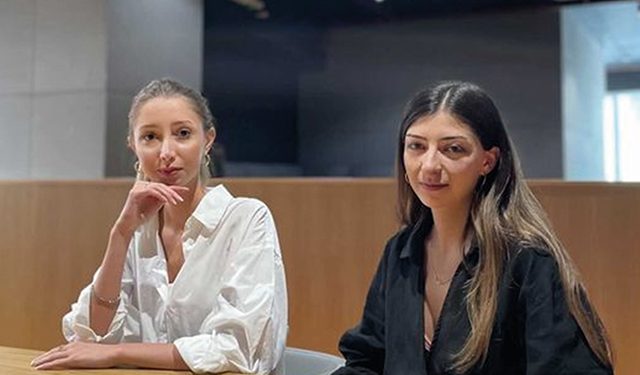Tbilisi has become a hub of tech skill, investment, and opportunity. Local startups and large corporations have staked out their claims to the region’s blossoming talent pool, driving the value of software experts. A women-led duo have taken a leap into this sector to bring more awareness to the next wave of web-based innovation.
CandiKandy is an education startup founded by Mariam Sharmiashvili and Ana Ediberidze. The two have focused their energy on bringing tech-based education to Georgians in an easily understandable and accessible way. Through their training courses and development programs, they aim to create a new generation of Web3 developers, armed with the knowledge and opportunities to drive Georgia’s tech sector.
In their monthly meetings, they bring veterans of Georgia’s tech industry to speak about what to expect, and new happenings in Web3. Interpreted as the next wave of decentralized internet, these experts claim the dominance of “Big Tech” is coming to an end. As a result, this allows for smaller players to gain more share on the web, enhanced privacy, and incorporation of blockchain and token-based technologies.
GEORGIA TODAY sat down with Mariam and Ana to explore their new venture, comment on the criticism, and find out what’s in store for CandiKandy in the future.
The Web3 concept of decentralization of the internet opens a lot of space for smaller companies to get involved. How is CandiKandy a part of this?
All the companies who are moving to Web3 or are starting from scratch need team members who can do the job related to Web3. There are many new roles that appeared within the concept of Web3, yet there are few educational resources available for one to learn effectively in the local language.
That’s where CandiKandy comes in. Our goal is to train people to become Web3 developers. We do this through in-person classes, led by a lecturer, and held in Georgian. By creating more professionals in this field, it benefits the growth of the Web3 ecosystem. On the one hand, we give people opportunities for career growth, and on the other we help Web3 companies who are looking to hire in Georgia.
Some, including Elon Musk, have said that “Web3” is just a “marketing buzzword.” What is your take on this perception of the next iteration of the internet?
It’s always good to have people with different opinions about the topic, since it triggers healthy criticism that leads to good questions. If we follow the facts and you see the market, then you see the growth and you see the demand. There is more demand for jobs than supply of roles.
This means there is an opportunity for people to transition their career and have a better quality of life, since the skills are very highly paid. Call it “marketing buzzword” or whatever you want, the fact is that there is opportunity that you can grab and run with.
The tech industry is already a crowded space. What are the biggest challenges to your growth and what are you doing to stand out?
The biggest challenge at the moment is raising awareness of opportunities in Web3 in Georgia. There are many people who still aren’t sure what Web3 is. They have heard this word many times yet don’t fully understand the meaning of it, or why they should transition their career.
That’s why CandiKandy organizes monthly events, called “Web3 Tbilisi,” where invited speakers talk about opportunities and share with us their experiences in the field. We want to attract more women into the tech since at the moment the market is dominated by males. That’s something we are very passionate about changing, and for which we are actively partnering with different communities.
How do you see you and your team growing in Georgia with regard to the expansion of tech opportunities in the region?
I think expansion of tech opportunities in Georgia is directly related to our growth. The more companies transitioning into Web3, the more jobs will appear locally. We will fill out those roles with our students.
By Michael Godwin














